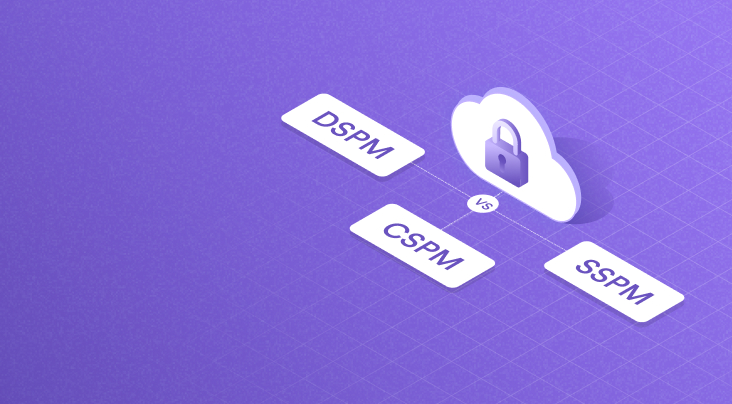Artificial intelligence (AI) has emerged as a revolutionary force in our rapidly evolving technological landscape, transforming industries, automating procedures, and how we connect with others. Although AI has great potential, it also has serious ethical, legal, societal, and organizational implications. The need for a strong and thorough framework is developing as AI systems are integrated more deeply into our daily lives. The absence of AI governance raises the risk of privacy violation, biased algorithms, and misuse of AI for malicious purposes. Building a robust AI governance framework ensures transparency, accountability, and the responsible development and deployment of AI systems. McKinsey & Company estimates that just Generative AI (a subset of AI models - i.e., applications such as ChatGPT, GitHub Copilot, Stable Diffusion, and others) could add the equivalent of $2.6 trillion to $4.4 trillion annually to business revenues with more than 75% of value arising from embedding Generative AI for the purposes of customer operations, marketing and sales, software engineering, and R&D. To ensure that AI technologies are harnessed for enhanced productivity while limiting potential risks and hazards, this framework will serve as a guide for navigating the challenging terrain of AI development, deployment, and regulation.
What is an AI Governance Framework?
A structured set of regulations, policies, standards, and best practices intended to regulate and govern AI technologies' development, application, and use. It serves as a guide to ensure AI systems are developed and utilized ethically, responsibly, and in accordance with legal standards.
Components of an AI Governance Framework
A robust AI governance framework comprises several crucial components that collectively ensure the AI's ethical and responsible use. These include:
Establish Ethical Guidelines
Universal principles and values defining the ethical standards that AI systems should meet, including fairness, transparency, accountability, and privacy.
Ensure Data Security
Ensure data privacy and security and obtain consent when collecting, storing, retaining, and sharing data.
Ensure Transparency
Be transparent about the AI model's purpose, data collection, and processing activities.
Demonstrate Accountability
Establish guidelines that demonstrate accountability and liability for the actions made by AI developers and AI systems.
Mitigate Discrimination
Establish strategies to identify and mitigate biases in AI systems to prevent discrimination and unfair outcomes.
Regulation and Compliance
Ensure compliance with data protection laws and AI laws to avoid non-compliance penalties.
Monitoring and Assessment
Establish mechanisms to continuously monitor AI systems' performance and impact and conduct risk assessments to ensure all vulnerabilities are patched.
Key Considerations When Building an AI Governance Framework
Several crucial factors need to be considered while building an AI governance framework. These include:
- Assessing your organization's needs,
- Ensuring sensitive data is handled responsibly and securely,
- Recognizing the applicable legal and compliance standards and understanding their provisions,
- Broadcasting transparency and explainability of how AI systems make decisions and the option to scrutinize its processes,
- Assigning roles and accountability when AI systems malfunction or cause harm,
- Establishing data management policies and oversight teams,
- Documenting the process and providing users with an intuitive user interface, and
- Continually engaging in ongoing monitoring and adaptation to the rapidly evolving field of AI.
Risks Posed by AI
As the global landscape jumps on the AI bandwagon, the dire risks and threats posed by the unregulated growth of AI are also coming to light. If not developed and deployed cautiously, the very properties that make AI systems and models fascinating technological advancements also make them potentially the riskiest technology. The ability of AI models to identify patterns, forecast actions, and derive insights from enormous amounts of data has demonstrated several vulnerabilities that, if exploited, can result in:
- Unauthorized surveillance of persons and human societies on a massive scale,
- Unexpected and inadvertent breaches of personal data of individuals,
- Reflection of cultural biases and prejudices in legal, financial, or socially significant scenarios,
- Detailed and individualized behavioral profiling.
The risks posed by the rapid advancement of AI systems and models have become so pronounced that, in an unprecedented move in March 2023, 30,000 individuals, including some of the world's leading technologists and technology business leaders, signed a letter urging global governments and regulators to intervene unless AI developers agreed to voluntarily halt or slow down the development of AI technology for a period of six months.
Importance of Understanding AI Regulations
With the proliferation of AI, regulators worldwide are moving fast to develop regulatory controls to ensure privacy and other related risks posed by these AI models and systems are identified, mitigated, and regulated before any significant type of harm is caused. Understanding the importance of AI regulation is important for several key reasons:
Ethical and Moral Considerations
Regulations ensure that AI systems' key decisions comply with ethical and moral standards because they can substantially impact the lives of individuals.
Safety and Accountability
Regulations help establish safety standards for AI systems and hold users and developers responsible for any harm from AI actions.
Data Privacy
AI utilizes enormous volumes of data, and regulations safeguard an individual’s privacy by establishing data collection, storage, and use rules.
Fairness and Bias
By addressing bias and discrimination in AI algorithms, regulations may ensure that AI systems serve everyone equally and without bias.
Transparency
Regulations favor transparency in AI development, which makes it simpler for users to fully understand how AI systems function and make informed decisions.
Innovation and Competition
Besides prohibiting monopolies and unethical commercial activities, clearly specified legislation can promote an encouraging environment for AI innovation.
International Collaboration
Since AI is a global technology, it is essential to understand AI regulation to promote international collaboration and consistency in tackling AI-related challenges.
Consumer Trust
Regulations increase public confidence in AI technology, promoting their increased adoption and acceptance by individuals and organizations.
Cybersecurity
AI regulations can establish cybersecurity guidelines to secure AI systems from evolving malicious attacks and vulnerabilities.
Legal and Liability Framework
Regulations provide a clear legal framework for dispute resolution by defining obligations and liabilities in the event of AI-related incidents.
Penalties for Non-Compliance
Failure to comply with existing data privacy laws and upcoming AI regulations can have dire consequences for AI systems and models, such as legal consequences, hefty penalties, damage to an organization's reputation, and disruption of the AI model’s operations. Regulatory bodies don’t shy away from penalizing organizations engaged in malpractice. Recent examples include:
Clearview AI – fined nearly $8 million by the United Kingdom’s Information Commissioner’s Office for collecting personal data from the internet without obtaining consent of the data subjects. Similarly, the Italian data protection authority fined the company $21 million for violating data protection rules.
Replika AI – The Italian data protection authority banned the app from processing the personal data of Italian users and issued a warning to face a fine of up to 20 million euros or 4% of the annual gross revenue in case of non-compliance with the ban. The reasons for the ban cited by the regulatory authority included concrete risks for minors, lack of transparency, and unlawful processing of personal data.
ChatGPT – OpenAI was fined 3.6 million won by South Korea's PIPC for exposing the personal information of 687 citizens.
The regulatory landscape surrounding AI remains a tumultuous frontier, where hazy legal frameworks and evolving global standards developing in real time create a unique compliance challenge and a risky business environment. Therefore, it’s crucial for organizations developing AI models and systems to understand the importance of building an AI Governance framework and regulatory requirements surrounding AI.
AI Regulatory Compliance Obligations
- The European Union’s General Data Protection Regulation (GDPR) and draft Artificial Intelligence Act (AI Act)
- Canada’s Personal Information Protection and Electronic Documents Act (PIPEDA) and draft Artificial Intelligence and Data Act (AIDA)
- The United States of America’s Federal Trade Commission’s guidance on AI and the US White House’s Blueprint for an AI Bill of Rights (AI Bill of Rights)
How to Establish an AI Compliance Program
Step 1: Classify AI systems and assess risks
Assess the risks of your AI system at the pre-development, development, and post-development phases and document mitigations to the risks. You must also classify your AI system, perform bias analysis, etc.
Step 2: Secure AI systems
Ensure proper safeguards protect AI systems and the data involved from security threats, unauthorized access, etc.
Catalog your training data to ensure bias removal, anonymization, removal of sensitive personal data, removal of obsolete data, ensuring the data is accurate, ensuring data is minimized, etc.
Publish AI systems-related disclosures to data subjects in your privacy policy with explanations of what factors will be used in automated decision-making, the logic involved, and the rights available to data subjects.
Step 5: Take consent and honor opt-outs from data subjects
Provide Data Subjects the right to opt-out of their personal data being used by AI systems (or to opt-in or withdraw consent) at the time of collection of their personal data.
Step 6: Fulfill Data Subject Rights (Access, Deletion, Appeal/Human Review)
Provide data subjects the right to:
- Access their personal data, which has been processed by the AI data system, the logic involved, and the outputs created based on the process.
- Delete their personal data from AI data systems and possibly remove a ‘learning’ from that data from the algorithmic model.
- Opt-out of their personal data from an AI system and possibly remove a ‘learning’ from that data from the algorithmic model.
- Provide the data subject a right to appeal any decision made by an AI system or obtain human intervention.
Step 7: Demonstrate Compliance and Audit
Monitor the AI system to:
How Securiti Can Help
AI regulations remain a highly dynamic domain. Organizations utilizing AI services will not only be subject to intense scrutiny but will also find themselves having to comply with extraordinarily diverse obligations owing to just how unique each country’s regulatory attitude towards AI can be.
Securiti Data Command Center comes packed with a wide range of modules and solutions that ensure you can automate your various consent, privacy policy, and individual data obligations.
Request a demo today and learn more about how Securiti can help your organization comply with any AI-specific regulation you may be subject to.













